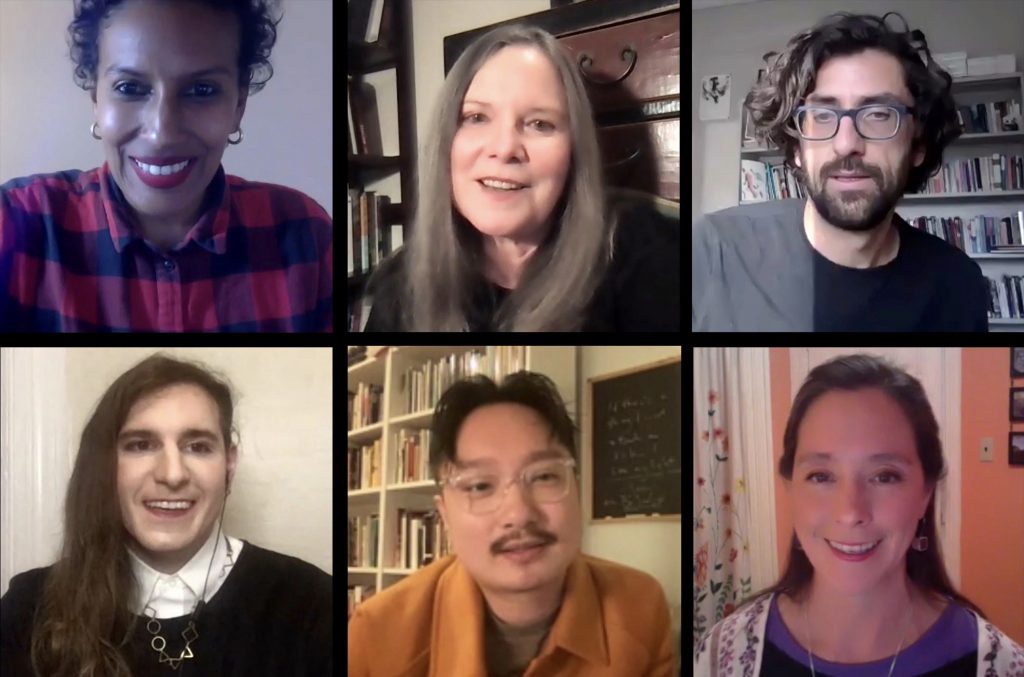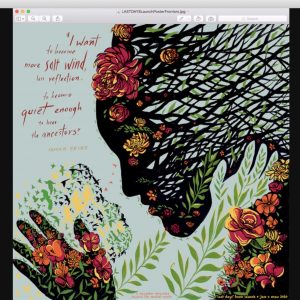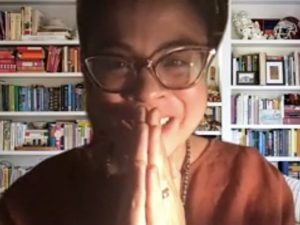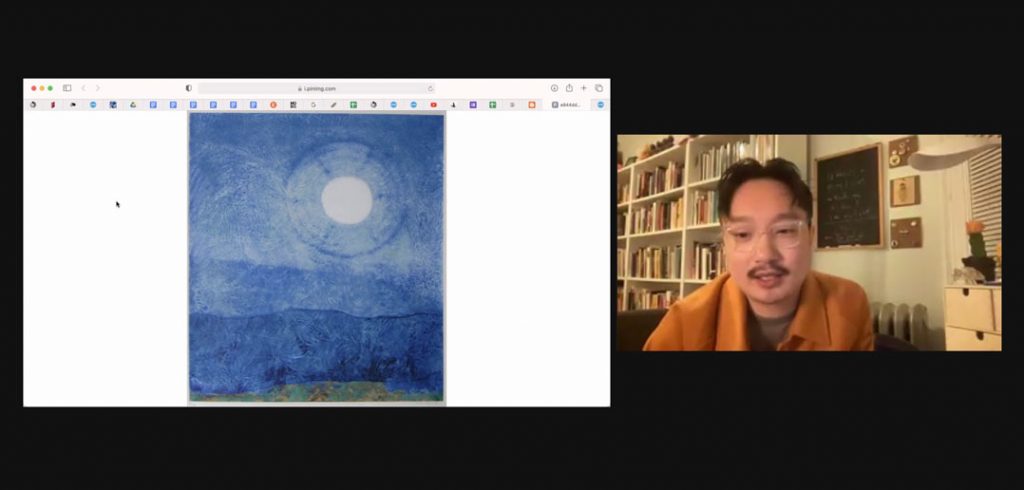“It was so lovely to have this moment of true connection with other attendees who were Zooming in from across the country and even the world. Seeing the beautiful words of everyone in the chat fly up across the screen was incredible,” said Shannie Rao, a junior English major at Fordham College at Lincoln Center. “As a student, the opportunity to be in a virtual room with so many different attendees—including some who were established poets—and all bring our most authentic selves to the writing prompts felt like such a gift.”
The festival, held in honor of National Poetry Month and in support of Demos, a think tank that promotes an inclusive and mutiracial democracy, featured six award-winning poets who served as the evening’s “poet guides”: José Felipe Alvergue, Tamiko Beyer, Chen Chen, S. Brook Corfman, Carolyn Forché, and Aracelis Girmay.

Each poet guide shared their favorite poems and intimate stories from this past year. Girmay recited a poem that helped her heal after father died in August. Alvergue recalled the day he told his neighbors how he felt about their new Trump/Pence 2020 campaign yard sign, standing a few yards away from his own Biden/Harris sign, and how he overheard them say, “Must be one of those illegal immigrants” as he walked away.
“I was so moved by all the poet guide’s meditations and poems,” said Mason Rowlee, a junior at Fordham College at Rose Hill who studies English and journalism. “It’s so difficult to focus and center yourself in the present with so much going on, and this festival is a great reminder of the importance of slowing down, taking a breath, and opening yourself up to being vulnerable.”
The six poet guides each offered a writing prompt to their virtual audience, who had several minutes to type responses in the Zoom chat. With the guidance of their host, Fordham professor and Director of Creative Writing Sarah Gambito, the audience completed their poems. Then they simultaneously hit the return button on their computers and released a flood of responses.
The Most Challenging Apology
One prompt asked attendees to think about the most challenging apology they could give or receive. The responses were powerful. One person apologized to their half-brother who died before they were able to meet “eye-to-eye, blood-to-blood, as halves.” Another apologized to their “long disabled daughter who has been quarantined for almost 30 years.” Several people apologized on behalf of their white slaveholder ancestors.
Many apologies related to the pandemic. One person demanded an apology from every white friend who had told them they were imagining increased hostility toward them as an Asian American, especially during the early days of the pandemic. Another asked for an apology for all the lives that could have been saved by wearing masks.
An Accidental Gift from COVID-19
The final poet guide, internationally renowned poet Carolyn Forché, reflected on life in the pandemic and asked the audience to write a poem of gratitude.

“We endured this as an entire species, all at once, all over the world. We came through this as human beings together. Not in living memory has this happened to the whole of humanity,” Forché said. “May we never lose sight of what we have been shown, that we share our Earth, sapphire and pulsing and alive.”
Guests said they were grateful for freshly planted lavender, for a pet who lived longer than doctors had expected, for a lover found on Tinder, for the COVID-19 vaccines and the scientists who developed them, and hundreds of other things.
“For lungs that work; for good bagels baked fresh; for fresh flowers from the bodega around the corner; for the guy at the bodega who always remembers me even with my mask on; for my dog; for poetry; for poets; for the little dust particles floating in a shaft of sunlight; for sunshine on my face; for the sharp bite of winter air when i breathe in; for museums; for chewy noodles; for my mother’s laughter; for life,” typed one guest.

At the end of the evening, the guests thanked their poet guides and hosts. “I am so grateful for all of you—for the vulnerability, for the hope,” typed one person. “A gift of Covid for sure—such an event could not have existed otherwise,” wrote another. They left the event with a unique souvenir: 89 pages of their collective poetry from the saved Zoom chat.
“I’ve always known that poems are alive, but it’s moments like this when we can see the poem materialize … I’m just in awe of you and of this,” Gambito said. “It’s your poem. It’s our poem.”
The festival was co-sponsored by Fordham College at Lincoln Center’s dean’s office, the Office of the Chief Diversity Officer, and several organizations outside Fordham.

